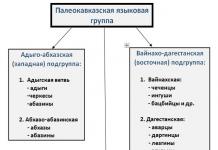Coconut oil is one of the favorite cosmetics that is widely used in Ayurvedic medicine for nutrition, rejuvenation, maintaining healthy skin and hair, as well as for internal use. The choice of coconut oils today is unusually wide: it can be pure and organic, can be produced by cold or hot pressing, refined or unrefined... Traditionally, organic unrefined coconut oil obtained by the first cold pressing method is considered the highest quality, since it is characterized by its high nutrient content , a pronounced healing effect on the body and has a unique natural taste and aromatic bouquet.
In order to verify this, we propose to get acquainted with some of the technological subtleties of the production of coconut oils, which directly affect the quality, composition, taste and aroma characteristics, as well as the price of the final product.
1. Raw materials
Made from fresh, green coconuts, which are high in flavor and nutrients. They contain less pulp and, as a result, less oil. However, the quality characteristics of the latter are the highest.
Regular coconut oil. Obtained from fresh mature coconuts. They contain more pulp and oil than green nuts, but they are inferior to them in terms of quality characteristics and delicate texture. The second option is to use coconut residue as a raw material, which is a by-product of the production of coconut flakes.
2. Preparation of raw materials
Cold pressed coconut oil. The flesh of fresh green coconuts is peeled and ground immediately after harvesting (no later than 24 hours).
Regular coconut oil. The collected nuts are split in half and dried for a long time in the open sun or in special ovens at high temperatures. Temperature treatment promotes the evaporation of valuable aromatic and essential oils, as well as the loss of some nutritional components. When drying in the open air, various impurities often get into the raw materials - dust, small insects, etc.
3. Spin technology
Cold pressed coconut oil. It is produced by cold-pressed or centrifuge method, i.e. using a conventional press or centrifuge within 24 hours after harvesting coconuts.
Regular coconut oil. It is produced by the hot-pressed method using chemicals in the final technological phase to separate the oil from the pulp and secondary purification of the resulting oil from impurities, or by the chemical extraction method using alkali and other solvents, if Coconut residues are used as raw materials.
4. Composition, properties and flavor characteristics
Cold pressed coconut oil. It has a subtle, soft smell and taste of natural coconut, is rich in antioxidants, and has a high content of medium-chain fatty acids, lauric, capric, caprylic acids and vitamin E. It has a pronounced antiseptic effect. When frozen it is white, when melted it is transparent. May not be uniform in texture.
Regular coconut oil. It has a less pronounced smell and taste, and fewer nutrients and valuable substances in its composition. It may have a yellowish or golden color due to the high content of saturated fats, especially if you have refined coconut oil. Most often it has a uniform texture.
5. Refining
Cold pressed coconut oil. Cold pressed oil is most often 100% unrefined.
Regular coconut oil. Most often it undergoes a refining process, that is, chemical treatment at the final stage of production. In this case, you can see the marking on the packaging (Refined or RBD (refined, bleached, deodorized or purified, clarified, deodorized)).
6. Marking
Cold pressed coconut oil. The packaging is labeled Virgin Coconut Oil (VCO) or Extra Virgin Coconut Oil (EVCO). There are no differences in manufacturing technology between these two types of coconut oil, unlike olive oil.
Regular coconut oil. If the label simply says Coconut Oil, then this is a hot-pressed product, or a mixture of refined and unrefined coconut oil.
7. Price
Cold pressed coconut oil. Oil obtained using cold-pressing technology is more expensive, since from about 1000 nuts weighing about 1500 kg, only about 170 kg of pulp and 70 liters of coconut oil of the highest quality are extracted.
Regular coconut oil. The price of such a product is significantly lower than in the case of cold-pressed oil and oil labeled “organic”, due to savings on the quality of raw materials and low cost of production.
Coconut oil labels and their meanings:
Virgin Coconut Oil (VCO) or Extra Virgin Coconut Oil (EVCO) - coconut oil obtained using cold pressing technology, using a press or centrifuge.
Coconut Oil- coconut oil obtained using hot-pressing technology, or a mixture of refined and unrefined coconut oil.
Unrefined Coconut Oil- unrefined coconut oil.
Refined Coconut Oil- refined coconut oil.
RBD (refined, bleached, deodorized) - purified (refined), clarified, deodorized coconut oil.
Pure Coconut Oil- coconut oil, hand-made by cold pressing from the dried core of the coconut ("copra"). A rare and expensive type of oil, under the guise of which ordinary refined coconut oil is often sold.
Organic Coconut Oil- premium coconut oil, which is obtained from coconut palm nuts grown without the use of chemical fertilizers and insecticides.
Main features:
- organic extra virgin coconut oil
- unrefined, unbleached, non-hydrogenated, non-deodorized, non-GMO
- universal - suitable for cooking, skin and hair care
About the product:
Baraka Organic Extra Virgin Coconut Oil consists of 100% natural, selected, ripe coconuts grown in environmentally friendly conditions on plantations that are certified "Organic".
Unrefined, cold-pressed coconut oil is especially valuable because the method of its production allows you to preserve all the beneficial substances of natural coconut. Of the oils on the market, only a tenth is extracted by cold pressing; this is “virgin” - the highest quality oil.
Coconut oil contains vitamins A, C, E, as well as a large amount of antioxidants, triglycerides and saturated fatty acids, so it is very useful not only for food, but also as a cosmetic product for skin and hair care.
Baraka coconut oil is produced using cold-pressed technology without refining, without bleaching, without hydrogenation and without deodorization, and the oil does not contain GMOs.
Baraka coconut oil is the most widely used coconut oil in the world, and hundreds of thousands of people are convinced of its benefits every day. By purchasing Baraka coconut oil in our online store, you will discover the secrets of Indian cuisine, cosmetics, and medicine. Ordering oil is very simple, and this purchase will bring real joy.
Action:
As an edible coconut oil:
- cleanses the liver
- helps improve metabolism,
- promotes the formation of lipoproteins, fats, hormones and bile necessary for digestion,
- reduces the risk of cancer, osteoporosis and diabetes,
- helps reduce blood cholesterol.
For regular skin care, coconut oil:
- intensively moisturizes, nourishes and softens the skin,
- restores hydrobalance, protects against dehydration,
- stimulates cell regeneration and renewal,
- slows down the aging process,
- prevents the formation of stretch marks,
- protects the skin from sunburn and forms an even, beautiful tan,
- reduces the risk of skin cancer,
- effectively relieves inflammation and irritation on the skin,
- has an antiseptic and antifungal effect,
When used regularly as a hair mask, coconut oil:
- restores, nourishes and moisturizes dry and damaged hair,
- helps maintain natural shine and smoothness of hair,
- improves the condition of the scalp, preventing the formation of dandruff,
- helps reduce hair loss,
- protects hair from daily mechanical damage.
Indications for use:
- high blood cholesterol
- metabolic disorder
- liver problems
- skin irritation and inflammation
- damaged, dry hair
- hair loss
Contraindications:
Individual intolerance to the drug.
Instructions for use:
Coconut oil can be stored in its original form for several years without refrigeration. At temperatures below +25°C, the oil acquires a creamy texture, fully retaining its beneficial properties. If the oil is too thick, you can warm it up a little in a steam bath.
As a cooking oil: Baraka coconut oil can be used for frying, making baked goods and confectionery, dressing fruit and vegetable salads, and other dishes.
As an oil for face and body: Apply coconut oil to the skin with gentle massage movements until completely absorbed. The oil can be used as a tanning agent and as a soothing and emollient after hair removal, pedicure, manicure and shaving.
As a hair mask: apply coconut oil to the scalp and hair along the entire length, leave for at least 30 minutes, then rinse thoroughly with Ayurvedic shampoo.
For cosmetic purposes, coconut oil can be used in its pure form, as well as for enriching various cosmetics, for example, creams, shampoos, masks. When used in conjunction with other cosmetics, coconut oil enhances their beneficial properties and improves the absorption of nutrients.
Compound:
100% extra virgin organic coconut oil.
Manufacturer: Baraka, Sri Lanka.
Best before date: 2 years.
Aroy-D coconut oil is produced in Indonesia exclusively from fresh coconut pulp by cold pressing. The oil obtained by first cold pressing fresh coconut pulp has unique nutritional and cosmetic properties. No pesticides, synthetic mineral fertilizers, flavorings, artificial food additives or GMOs were used in its production.


Composition and benefits of coconut oil
What is the value and benefits of coconut oil? In its unique composition, of course. Please note that we are talking about virgin coconut oil, not subjected to any heat or chemical treatment. This oil is called Virgin, which means “Virgin” in English. When people talk about the benefits of coconut oil, they primarily mean fatty acids with a medium carbon chain in its composition, and specifically Lauric acid.
Medium-chain fatty acids sound complicated, but in reality everything is quite simple and clear. Figuratively speaking, these are fats that are not stored in reserve in the most inappropriate places, but are used by the body as a source of energy and even help burn fat reserves. That is why nutritionists recommend using coconut oil instead of the popular refined sunflower and butter for preparing any dishes. Try frying vegetables in coconut oil or adding it to baked goods - you will definitely like the new taste!
The main one of these beneficial medium-chain fatty acids in coconut oil is Lauric acid, which accounts for about 50% of the total composition. Lauric acid is a rather rare substance that is found, in addition to coconut, in the composition of oil , , Peach fruits and other lesser-known tropical palms. Very small amounts (less than 1%) of lauric acid are found in date pits, macadamia nuts, watermelon seeds and , and also... in the breast milk of people and some animals.
Lauric acid has high antibacterial activity. In Vitro scientific experiments have shown its effectiveness in the fight against Acne. But Lauric acid is better known in scientific circles for its ability to raise the level of “good” cholesterol in the blood - high-density lipoproteins (HDL), which reduces the risk of developing atherosclerosis and other cardiovascular diseases. By the way, this acid is absent in refined coconut oil, but in freshly squeezed Aroy-D coconut oil Lauric acid occupies 50% of the volume!
Virgin extra virgin coconut oil is an excellent cosmetic product. It is difficult to remember another product that would be so universal and have such a wide range of effects on the body. For women who know a lot about preserving the beauty and health of their skin and hair, it has long been no secret that coconut oil is a great helper in this. Virgin Coconut Oil is ideal for dry skin as a moisturizer, and regular use as a hair mask improves hair softness and elasticity by reducing the loss of hair proteins.
Coconut oil is made from the so-called copra - the pulp of the coconut. At the same time, to produce one liter of coconut oil, you will need the pulp of 30-40 nuts.
Coconut oil is presented on the market in large quantities, of different brands, different countries of production, but at the same time, coconut oil produced in India and Thailand is considered classic.
Cold pressed unrefined coconut oil has an interesting natural feature. If the ambient temperature is +24 C and above, it becomes liquid and transparent like water, if the temperature drops below +24 C, it becomes like Vaseline.
Buy unrefined cold-pressed coconut oil (500 ml) "BANNA" Coconut Oil 100% in the Online Store from Thailand OrganicThai.
For a long time, coconut oil was not consumed as food, but in vain! After all, coconut oil does not contain cholesterol and contains only healthy fats. Taking 1 tablespoon of coconut oil 20 minutes before starting a meal will relieve your body of diet stress and speed up your metabolism.
Uses of cold pressed unrefined coconut oil:
Body care:
Cold pressed coconut oil from Winner Wash is very beneficial for the skin, it helps moisturize and nourish the skin for a long time. Thanks to the content of lauric acid, the oil helps smooth out fine wrinkles on the skin and restores natural color.
Hair care:
Coconut oil can prevent split ends and give hair a healthy shine and shine along its entire length. When applied to hair, it forms a thin film on each hair. It is necessary to apply the oil to your hair for 1-2 hours a couple of times a week, then rinse your hair with shampoo twice; the effect of such a mask will be noticeable after the first use.
Oral care:
Cold-pressed Extra Virgin Coconut Oil helps cleanse the mouth of harmful bacteria and has whitening properties. This occurs due to the contact of oil acids with tooth enamel. To do this, you need to rinse your mouth for 5-15 minutes a day, repeating several times a week.
For cooking:
Coconut oil has a sweet taste and amazing aroma, which will certainly be a highlight for the preparation of confectionery and add piquancy to salads and meat or fish dishes.


















